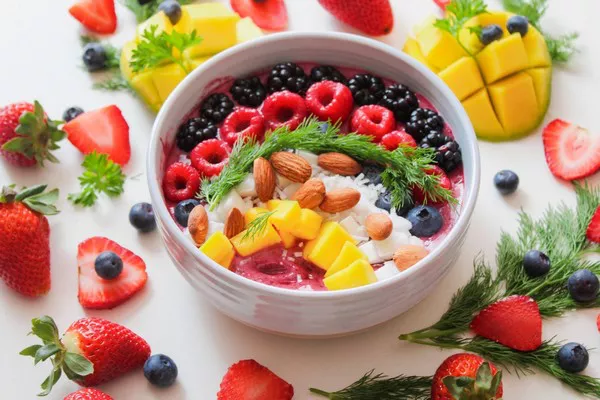Dieting is a common way to lose weight, but it can be challenging to navigate. Many people think that dieting means eating less, but it’s not that simple. Eating less can lead to nutrient deficiencies, and it may not be sustainable in the long term. Today, we will discuss what to eat when you diet and provide several points to help you make healthier choices.
-
Increase your protein intake
Protein is an essential nutrient for building and repairing muscles, and it also keeps you feeling full for longer periods. Including more protein in your diet can help you lose weight and keep it off. Good sources of protein include lean meats such as chicken and fish, eggs, beans, and lentils.
One study found that increasing protein intake to 30% of daily calories helped participants lose weight and keep it off for a year compared to those who ate less protein. Another study showed that increasing protein intake to 25% of daily calories reduced cravings and late-night snacking, leading to weight loss.
-
Load up on fruits and vegetables
Fruits and vegetables are high in nutrients and low in calories, making them the perfect choice for weight loss. They are also high in fiber, which can help keep you feeling full for longer periods. Aim for at least five servings of fruits and vegetables a day.
One study found that people who ate more fruits and vegetables lost more weight and had a lower risk of chronic diseases such as diabetes and heart disease. Another study showed that increasing fruit and vegetable intake led to a decrease in calorie intake, resulting in weight loss.
-
Choose whole grains
Whole grains are a great source of fiber and other important nutrients. They also provide longer-lasting energy than refined grains, which can help you feel more satisfied and prevent overeating. Choose whole grain bread, pasta, and rice over their refined counterparts.
One study found that people who ate more whole grains had a lower risk of weight gain and obesity compared to those who ate more refined grains. Another study showed that replacing refined grains with whole grains led to weight loss and improved insulin sensitivity.
-
Avoid sugary drinks
Sugary drinks such as soda, juice, and sports drinks can be a significant source of empty calories. They provide no nutritional value and can lead to weight gain. Instead, opt for water, unsweetened tea, or coffee.
One study found that sugary drinks are strongly linked to obesity, and reducing their intake can lead to weight loss. Another study showed that replacing sugary drinks with water led to significant weight loss over six months.
-
Limit processed foods
Processed foods are often high in calories, sodium, and unhealthy fats. They also contain additives that can be harmful to your health. Choose whole foods instead, such as fresh fruits and vegetables, lean meats, and whole grains.
One study found that people who ate more processed foods had a higher risk of obesity and chronic diseases such as diabetes and heart disease. Another study showed that replacing processed foods with whole foods led to weight loss and improved health markers such as blood pressure and cholesterol levels.
-
Don’t skip meals
Skipping meals can lead to overeating and make it harder to lose weight. It can also lead to nutrient deficiencies. Aim to eat three meals a day, and include healthy snacks if needed.
One study found that skipping breakfast led to increased hunger and calorie intake later in the day, leading to weight gain. Another study showed that eating three meals a day led to greater weight loss and improved insulin sensitivity compared to eating six small meals a day.
-
Stay hydrated
Drinking plenty of water can help you feel full and prevent overeating. It can also help flush out toxins from your body. Aim for at least eight glasses of water a day.
One study found that drinking water before meals led to weight loss in overweight and obese adults. Participants who drank 16 ounces of water before meals lost more weight and had greater reductions in body mass index (BMI) than those who didn’t drink water before meals.
Staying hydrated is also important for overall health. Dehydration can cause fatigue, headaches, and even contribute to digestive issues. If you have trouble drinking plain water, try infusing it with fruits or herbs for a refreshing flavor.
In conclusion, what you eat when you diet is crucial to achieving your weight loss goals. Incorporating more protein, fruits and vegetables, whole grains, and water while limiting processed foods and sugary drinks can help you make healthier choices. It’s also important to eat regular meals and snacks to prevent overeating and stay hydrated for overall health. Remember, sustainable weight loss is a journey that takes time, patience, and consistency.
Recommended reading:


